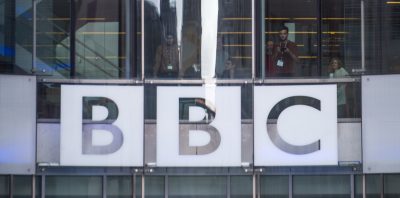
Last month Ritula Shah presented a BBC World Service discussion programme entitled Is “Fake News” A Threat To Democracy?
Predictably the debate focused on Russian attempts to influence Western populations and political systems.
Asked whether the US has been involved in similar activities, Dr Kathleen Bailey, a senior figure in the US State Department’s Bureau of Intelligence and Research in the 1980s, was dismissive:
“We [the US] certainly do not have a budget, bureaucracy or intellectual commitment to doing that kind of thing.”
Carl Miller, the research director of the Centre for the Analysis of Social Media at Demos, also played down the West’s activities:
“I think Western countries do do less of this as a kind of tool of foreign policy than autocracies.”
“Read real journalism” — presumably BBC journalism — was one of the guest’s suggestions for countering Fake News.
Putting this self-serving and self-congratulatory narrative to one side, it is worth considering the BBC’s, and particularly the BBC World Service’s, own relationship to the British government’s own propaganda.
“Directly funded by government [the Foreign Office], rather than the licence fee” the World Service is “deeply embedded in the foreign policy, security and intelligence apparatus of the British state,” Dr Tom Mills notes in his must-read 2016 book The BBC: Myth of a Public Service.
In particular, the BBC had a very close relationship to the Information Research Department (IRD) — “a Foreign Office propaganda outfit which sought especially to foster anti-communist sentiments on the left,” explains Mills, a Lecturer in Sociology and Policy at Aston University.
Set up in 1948, the IRD “was one of the largest and best-funded sections of the Foreign Office until it was discreetly shut down in 1977 on the orders of [then foreign secretary] David Owen,” investigative journalist Ian Cobain reported in the Guardian in July 2018.
…click on the above link to read the rest of the article…